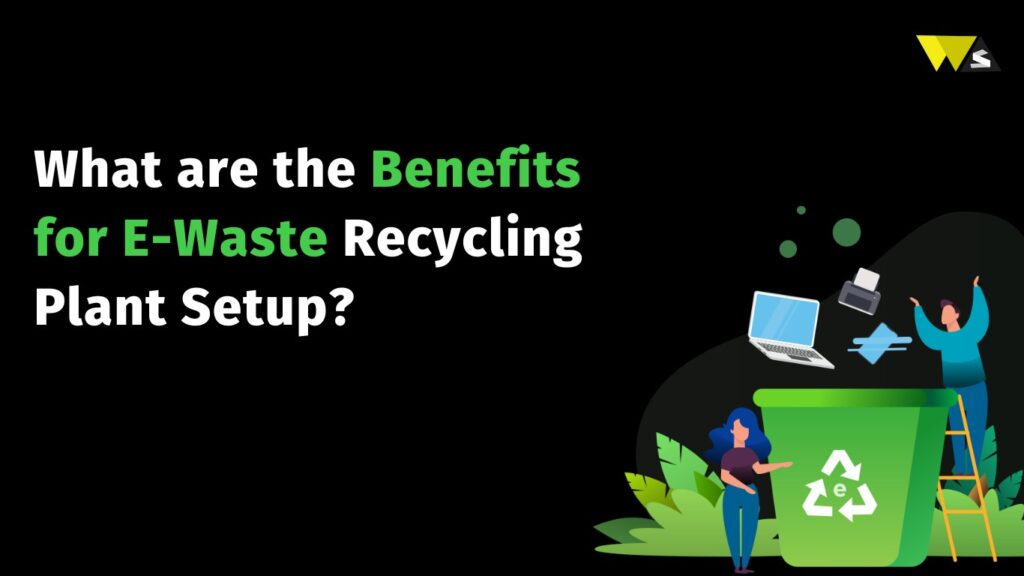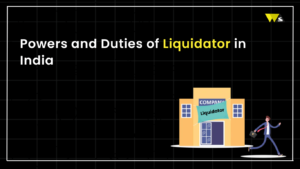It is true that imagining living in this modern time without the interference of the technology or the gadgets in is quite impossible. The manufacture and destruction of electronic devices has become more pronounced. There is waste produced during the production of electronic items that is regulated by e-waste recycling plant setup. E-waste mostly refers to electronic devices that is discarded as waste. This examples includes, mobile phones, televisions, and personal computers. In this blog we described about Benefits for E-Waste Recycling Plant Setup.
What is an E-Waste Recycling Plant?
- The need for recycling electronic waste these days is a popular and seen as a way of saving the environment and all living things.
- These electronic devices, after being thrown away, are taken to e-waste recycling plant for the purpose of recycling them.
- This waste is primarily collected from consumers and taken to an e-waste recycling facility which processes, deconstructs, and finally disposes of the waste.
What are the Benefits of E-Waste Recycling Plant Setup?
There are many benefits of E-Waste Recycling Plant Setup, including:
Prioritize Environmental Protection:
- Recycling e-waste puts environmental preservation at the first place. It entails appropriately handling, processing, and managing electronic waste.
- Because dangerous and poisonous materials included in electronics, such lead, mercury, and cadmium, can have a negative impact on the environment.
- An e-waste stream may contain a variety of useful products or resources. We can manufacture the majority of these components through e-waste recycling rather than throwing them away.
- In this manner, the risks that these components would have posed to the environment are reduced.
Conserve Available Natural Resources:
- Recycling electronic waste enables valuable materials to be extracted from electronic devices.
- Natural resources are preserved as a result. In this approach, manufacturers may recycle and reuse the components of e-waste without having to extract the minerals.
- So, in short, we can protect precious metals like copper, lead, and zinc from the elements. It encourages the prudent use of resources as a result.
Saves Landfills & Reduces GHG Emissions:
- Most of the electronic wastes are thrown into the landfills without considering any of the possible use of them. This mostly raise a high concern regarding the amount of accumulation of the e-waste in these sites, thereby calling for e-waste recycling.
- As the two-third part of the waste that is found in landfills is organic in nature, therefore it is bio-degradable and can be broken down into its original state.
- The good part is that these waste materials do decompose into methane, carbon monoxide, and other harmful wastes responsible to a greater extent for global warming.
- Because our local soil and water are contaminated by landfill piles. The goal of programs like e-waste recycling is to lessen these environmental issues.
Increases Affordability:
- It is less expensive to use recycled parts made from e-waste than ones made from mining operations.
- In this approach, production expenses can be decreased, leading to a more reasonably priced final product.
- Copper contained in electronic waste is indeed recyclable numerous times. As a result, the sector for recycling of copper has become an industry that is now a profitable one.
Prevent Water Bodies from Toxic Wastes:
- Hazardous materials present in the e-waste piles dissolve into the soil water, and later integrate into the nearby lakes and domestic water sources.
- Such harmful contaminants present in water systems is not only threatening the wildlife within the water system but also the people who use that water for consumption or any other purpose.
- Recovery of resources from the electronic waste prevents such deadly substances from seeping into surface and underground water and ensures the waters remain safe for human consumption.
- Processing of electronic waste also saves aquatic organisms from extinction as well as prevents the destruction of aquatic environments.
Reduce Air Pollution:
- The process of recycling e-waste prevents dangerous gases and particles from being released into the air and dangerous chemicals into the earth. There is less mining due to recycling e-waste, which in turn helps reduce pollution.
- Whenever the mountains are blasted with explosives for searching and finding the minerals in it, the harmful gasses such as carbon dioxide, sulphur dioxide & dust are released into the environment.
- Reducing waste gas emissions are achieved by electronic waste recycling thereby contributing in a great way towards air clean up.
Promote Fisheries Resources:
- The term “e-waste” refers to the assemblage of all the electronic devices for which the end users have no further use, or thrown away bearings towards the electric and electronic waste containment.
- In large river streams and ponds, large quantities of lead, copper, mercury, cadmium among other chemical pollutants are released killing the water bodies and causing chemical pollution.
- For instance, mercury is a neurotoxic that can quickly cause an organism’s death. According to recent scientific research, human activity around water bodies is the source of the high mercury levels detected in dead fish discovered in deposits on sea and waterbeds.
- Recycling e-waste contributes to lowering the release of these dangerous pollutants and preserving aquatic ecosystem equilibrium.
Promotes Soil Fertility:
- Recycling e-waste not only keeps harmful substances from seeping into the soil and rendering it unfit for plant development. Large dust particles are also released when e-waste is burned, shredded, and disassembled.
- Additionally, these particles settle on the earth, rendering it uninhabitable. Since agriculture provides a living for a significant portion of the global population, keeping the fields safe and productive for plant growth is crucial to advancing human welfare in general.
- Recycling electronic waste preserves the soil’s integrity. thereby promoting agriculture and the expansion of green, natural resources that benefit humans, animals, and plants.
Encourage Awareness and Consumerism:
- Regular e-waste recycling management serves as a helpful reminder for our purchasing decisions and conduct. As a result, people become more aware of environmental issues.
- Rather than adding to the landfill and exhibiting a careless, throw-away mentality, it’s time for us to adopt mindful consumerism by considering our purchases before making them.
- Additionally, you ought to attempt recycling or mending electronic devices rather than throwing them away.
Conclusion
Today it is more than important to safeguard the environment from the destructive consequences of climate change and high temperatures. Sustainable use of the resources that are accessible can minimize the effects that human activities have on the environment. Therefore, one way of protecting the environment is by managing electronic waste properly through recycling.










